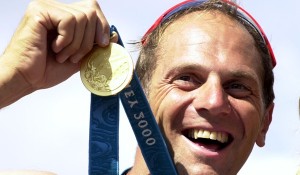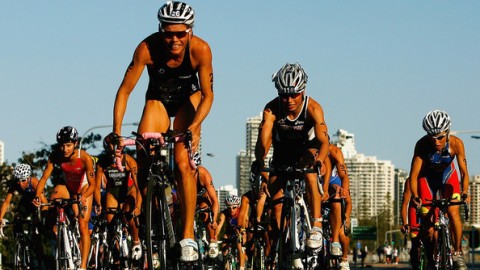- Teeth require more protection while practicing sports such as running, physical contact disciplines, or weight lifting
- Dehydration increases risk of developing bacteria on mouth and teeth
 Exercise benefits people´s well being in general, however, some sports and habits related to this healthy practice require more attention in order to prevent causing any harm to a person´s oral health.
Exercise benefits people´s well being in general, however, some sports and habits related to this healthy practice require more attention in order to prevent causing any harm to a person´s oral health.
According to Dr. Telma Rubinstein from Prisma Dental, ¨oral health is extremely important to athletes and any complication in the dental or mandibular area can cause damage, which can go from spreading an infection to preventing muscular recovery from being fast and effective.¨
Oral health problems in athletes can be caused by poor oral hygiene or trauma caused by practicing a sport.
¨Sports performance can be affected by infections caused by poor oral hygiene. For example, periodontitis causes inflammation on teeth and soft tissues; however, if the infection goes to the bone there is the possibility that it could spread through the bloodstream, causing harm to another organ in the body¨, explained Dr. Rubinstein.
This diffusion can affect the muscular area directly, causing damage that, for athletes, can be significant in their professional performance and development.
Some sports can trigger negative consequences in oral health. For example, in weight training in which the physical effort is major, a person can strongly grind their teeth which can cause them to wear down.
¨In physical contact disciplines, such as martial arts or wrestling, it is important to wear a mouthguard to protect the teeth from any hitting and to avoid fractures¨, recommends the specialist. When practicing soccer, basketball, or rugby, athletes should pay more attention as well in order to protect the mouth and teeth.
When running, the whole organism is in constant bouncing movement, whether it is softly or hardly depending on the surface in which the runner practices, but it is always present. This bouncing movement can cause pain in the mouth, gums, or teeth.
surface in which the runner practices, but it is always present. This bouncing movement can cause pain in the mouth, gums, or teeth.
¨In cases like this, the belief that with exercise the pain will go away is incorrect; on the contrary, it can worsen. It is the runner´s responsibility to visit a specialist so that this bother does not aggravate or reaches the point where it can interfere with the runners concentration that is required for a good performance¨, explained Dr. Rubinstein.
Some habits that are part of practicing sports require more attention in order to prevent detriment in oral health. For example, hydrating beverages or sports drinks and gels used by athletes have high sugar levels and artificial coloring, which can cause harm to teeth and oral health.
Dehydration is another aspect to be taken into consideration, as it allows bacteria increase in the mouth due to reduced salivation.
Prevention is key to avoid harm to an athlete´s oral health
Generally, weight control and good physical health contribute to a person´s wellbeing and it is considered as well to reducing the risk of developing periodontitis.
However, prevention should be the most important thing. ¨First of all, the gums have to be checked, as they are the place where infections are generated, for any change in color such as bright red, or if the presence of liquid can be perceived in them¨, stated Dr. Rubinstein.
People who practice extreme sports must be careful with accidents in which several or one tooth can fracture, be lost, or can affect Temporomandibular articulation. When an articulation receives a stroke, it absorbs it, causing pain that could lead to osteoarthritis.
It is also fundamental that if a person suffers from cavities with tooth nerve inflammation, when the artery pressure and pulsation levels are increased, so are the pulsations inside the tooth, which will aggravate the problem.
On the contrary, swimming can benefit the mouth, as it produces a self cleanse when the mouth is in direct contact with water; however, in some cases swimmers report that from being in contact with chlorine they have experienced some degree of sensitivity.
Besides these cares, athletes should not forget to brush their teeth three times a day, use dental floss, and have regular visits to the dentist.

